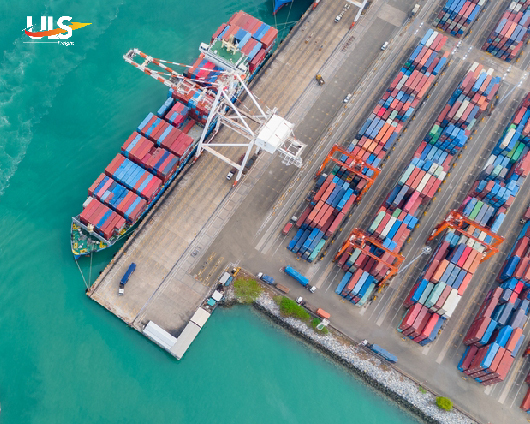Freight Forwarding Services: A Complete Guide to Canadian and Cross-Border Shipping
- ULS Freight

Shipping goods across regions, whether domestically within Canada or internationally, can feel like navigating a maze. Regulations, paperwork, transportation modes, and customs procedures create a complex web that many businesses and individuals struggle to manage. This is where freight forwarding services and customs clearance services step in. But what is freight forwarding service, and why is it so essential in today’s logistics landscape?
When a company invests in high-value products or sensitive equipment, the journey from point A to point B is never just about transportation. For business leaders, the movement of goods carries weight far beyond logistics. A client does not simply see a truck pulling up with a delivery; they see the professionalism, reliability, and reputation of the organization arriving at their door. That is why white glove shipping has become one of the most talked-about strategies in the modern business environment.
In 2025, executives are asking sharper questions than ever. They want to know if investing in white glove moving services makes measurable sense. They want to understand how it differs from standard shipping, what unique value it creates, and why competitors are embracing it so quickly. This blog answers those questions in detail, showing why white glove movers and specialized logistics partners are becoming essential to industries where mistakes are not an option.
Introducing ULSFreight: Your Freight Forwarding Partner
At ULSFreight, we specialize in simplifying logistics for Canadian businesses and cross-border shippers. With over two decades of experience in freight forwarding and supply chain solutions, we help clients manage domestic freight, international shipping, and multimodal transport.
Our expertise spans customs clearance with the Canada Border Services Agency (CBSA), rail coordination with Canadian National (CN) Rail and CPKC, ocean freight connections through the Port of Vancouver and Port of Montreal, and air freight solutions with IATA-certified carriers. We also maintain partnerships with trusted global networks such as FedEx and UPS.
Whether you’re a manufacturer exporting to the U.S., an e-commerce retailer expanding into Europe, or a business moving freight within Canada, ULSFreight delivers reliable, transparent, and cost-effective logistics solutions tailored to your needs.
What Is a Freight Forwarder?
A freight forwarder is a logistics professional or company that manages the transportation of goods by leveraging industry connections, customs expertise, and multimodal knowledge. Their role is to simplify what would otherwise be a complex and time-consuming process.
In practice, freight forwarders arrange transportation across trucking, rail, sea freight services, and air networks, prepare trade paperwork such as bills of lading and customs declarations, and oversee customs clearance to ensure compliance with duties and tariffs. They may also coordinate temporary warehousing and arrange cargo insurance to protect shipments against loss or damage. By managing these responsibilities, freight forwarders reduce risks, cut costs, and save time for businesses.
What Does a Freight Forwarder Do? (Canadian Example)
To illustrate, consider a Canadian business exporting goods to the U.S. ULSFreight might arrange pickup from a Toronto warehouse and ensure that packaging complies with CBSA and U.S. CBP standards. Our team would prepare customs paperwork, invoices, and certificates of origin, then book a cross-border trucking solution with intermodal options through CN Rail. At the Windsor and Buffalo border crossings, we’d coordinate with customs brokers, and finally, we’d oversee delivery to U.S. distribution centers.
According to Statistics Canada (2024), over $2.6 billion CAD worth of goods cross the Canada-U.S. border daily, making freight forwarding services indispensable for exporters.
What Is International Freight Forwarding?
International freight forwarding involves managing shipments that cross one or more international borders. Compared to domestic freight, this process is more complex because it involves customs clearance, tariffs, and international regulations.
Forwarders provide customs expertise to ensure import and export laws are met, access to global carrier networks across ocean, air, and trucking lines, and multimodal transport solutions that balance speed and cost. They also mitigate risks related to port congestion, reroutes, and international delays.
For example, in 2025, the average cost of ocean freight from Vancouver to Shanghai ranged between $2,200 and $2,600 per TEU (StatCan/Transport Canada).
What Is Domestic Freight?
Domestic freight refers to shipments that take place entirely within Canada. This may involve trucking goods between provinces, moving long-haul shipments by rail, or using regional air freight for time-sensitive deliveries.
Domestic freight matters because it supports regional supply chains that are vital for Canadian manufacturers. It also enables cost-effective delivery through optimized routes and allows businesses to expand into new provinces without stretching resources too thin.
CN Rail reported in 2024 that domestic intermodal shipments grew by 6.8% year-over-year, reflecting the increasing demand for freight services within Canada.
Benefits of Using a Freight Forwarding Service
- Expertise in handling complex trade regulations and ensuring compliance, saving time and stress.
- Cost savings through negotiated bulk shipping contracts.
- Allows businesses to focus on core operations instead of logistics.
- Reduced risks with insurance options and proactive rerouting during disruptions.
- Flexibility to manage shipments ranging from small e-commerce parcels to oversized industrial machinery.
People Also Ask: FAQs About Freight Forwarding
A carrier physically moves goods (by truck, ship, or plane), while a freight forwarder arranges and manages the process without operating the vehicles themselves.
While domestic shipments are less complex than international, a freight forwarder can still add value by securing competitive rates, managing logistics, and coordinating multiple carriers.
They typically earn through service fees, commissions on shipments, and value-added services like insurance or warehousing.
Yes. While businesses are the primary clients, individuals shipping personal goods internationally (such as when relocating) often benefit from freight forwarders.
Look for experience, industry specialization, global reach, transparent pricing, and strong customer reviews.
Conclusion
So, what is freight forwarding service? It’s the backbone of modern logistics, a professional solution that simplifies the movement of goods both domestically and internationally.
Whether you’re a Canadian business expanding into U.S. markets or an individual shipping goods overseas, ULS Freight ensures efficient, safe, and cost-effective cargo movement.
Ready to simplify your shipping?
Contact ULS Freight today for a tailored freight forwarding solution.
About ULS Freight
We are Road freight forwarder based in Canada, and offering our road freight services all across the USA, Canada, and Mexico for the last 10 years.
Recent Posts

The Global Supply Chain Crisis: How Logistics Companies Are Responding

Cross-Border Freight Challenges: Navigating Compliance in a Global Market

